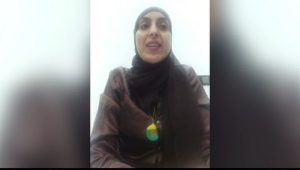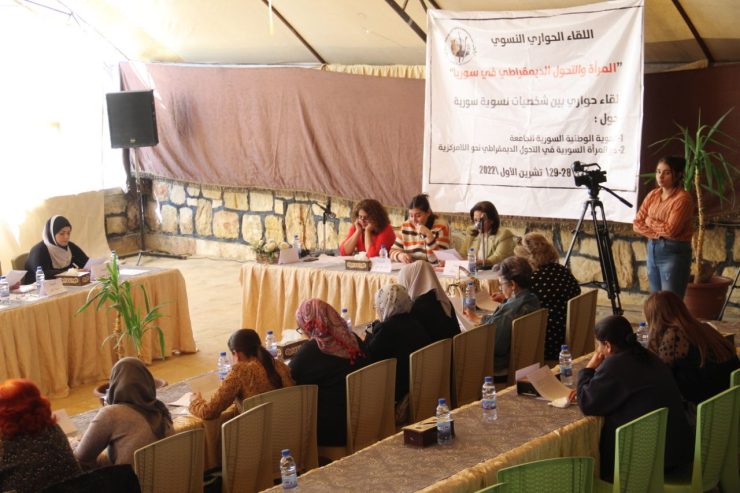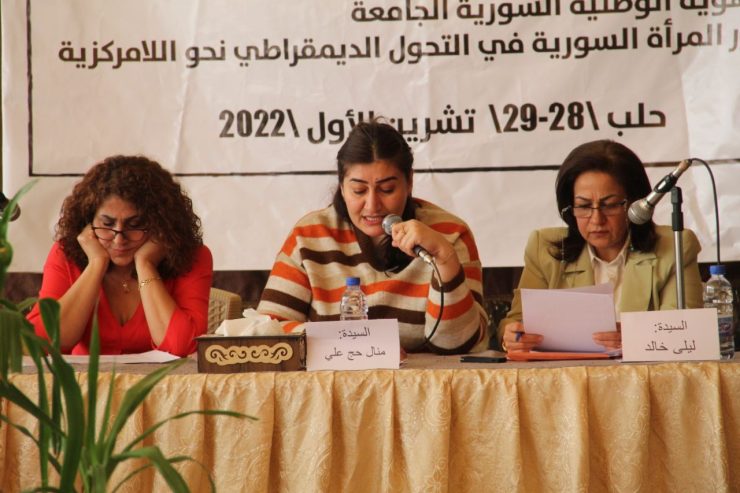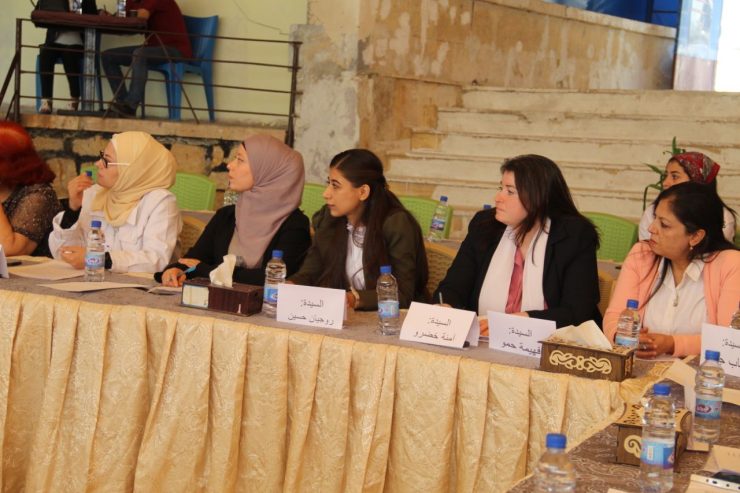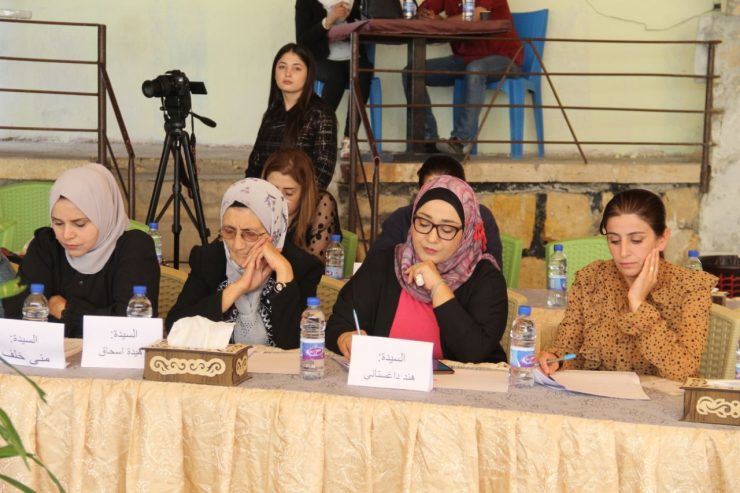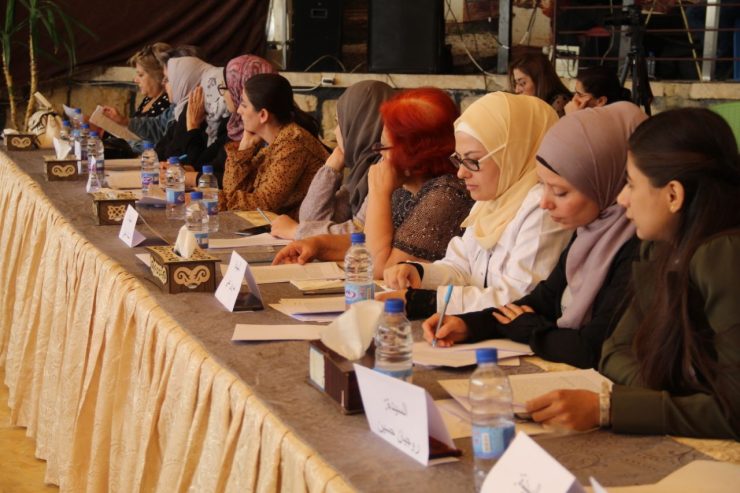The second theme paper, titled “The Role of Syrian Women in the Democratic Transition towards Decentralization”, was presented by “Manal Haj Ali”, in which she presented a historical introduction to decentralization in Syria, the concept of decentralization and its basic principles.
She added that during the political, social, geographical and cultural division and polarization that the Syrian society is experiencing, decentralization is a start point for a resolution and a guarantee of the territorial integrity of Syria.
Haj Ali stressed the need for national democratic powers, especially women, to unite and work on a unified vision and program that make decentralization as a start point for a resolution.
As for Najwa Al-Taweel, a feminist activist from As-Suwayda Governorate, said that if Resolution (107) had been implemented, the situation would have been better, but it was not implemented and it did not have the opportunity to be implemented, and some articles must be amended, such as the minister relinquishing some of his powers in favor of the localities, because they are the most capable of assessing the special needs of the region.
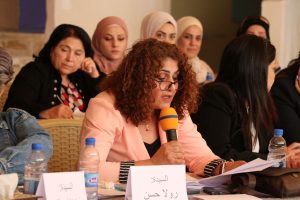
She added that decentralization is one of the most important systems through which citizens can be empowered to participate effectively in managing the local public affairs of the communities in which they live.
She emphasized that decentralization is a means to achieve the desired goals of the Syrians; it is not an end, and that the promotion of decentralization has developed methods to bring the government closer to people to ensure their participation and support the improvement of their lives. Resolution (107) and decentralization is a new experience in Syria, its development and work on it.
For her part, Amani Nafea, a member of the Lebanese Democratic Women’s Gathering, and a trainer of the Anti-Violence Against Women Program, spoke about the developments in the Middle East, the processes of exclusion of identities and cultures and the marginalization of women, and she pointed out that women’s access to decision-making positions is one of the most prominent steps on the path to democratic transition in any society.
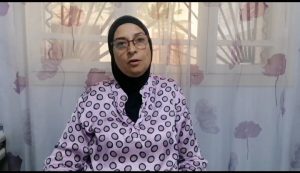
She concluded that they, as Lebanese women, also suffer from a sectarian system that is not open to the project of the resolution that was discussed in this meeting.
“We don’t have the freedom that we were known about it, and we are as Lebanese women; we are inspired by this experience to get our rights completely” Amani Nafea said.
While Sawsan Yassin, a participant in the meeting, spoke about decentralization and it exists but it is incomplete in Syria, and that the experience of the Autonomous Administration of North and East Syria is an ideal one and that women have been able to express themselves and their entity, and this experience must be generalized to the entire Syrian territories.
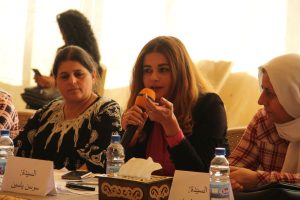
Meanwhile, Fatima Mokhtari, an Amazigh and human rights activist from Morocco, stressed the need to integrate and empower women politically by encouraging them to participate in politics and participate in political work, enhancing their role and their ability to occupy positions and leaderships, access to decision centers, and reconsider a set of traditional systems and laws that impede the integration and development plan, including the decentralization.
